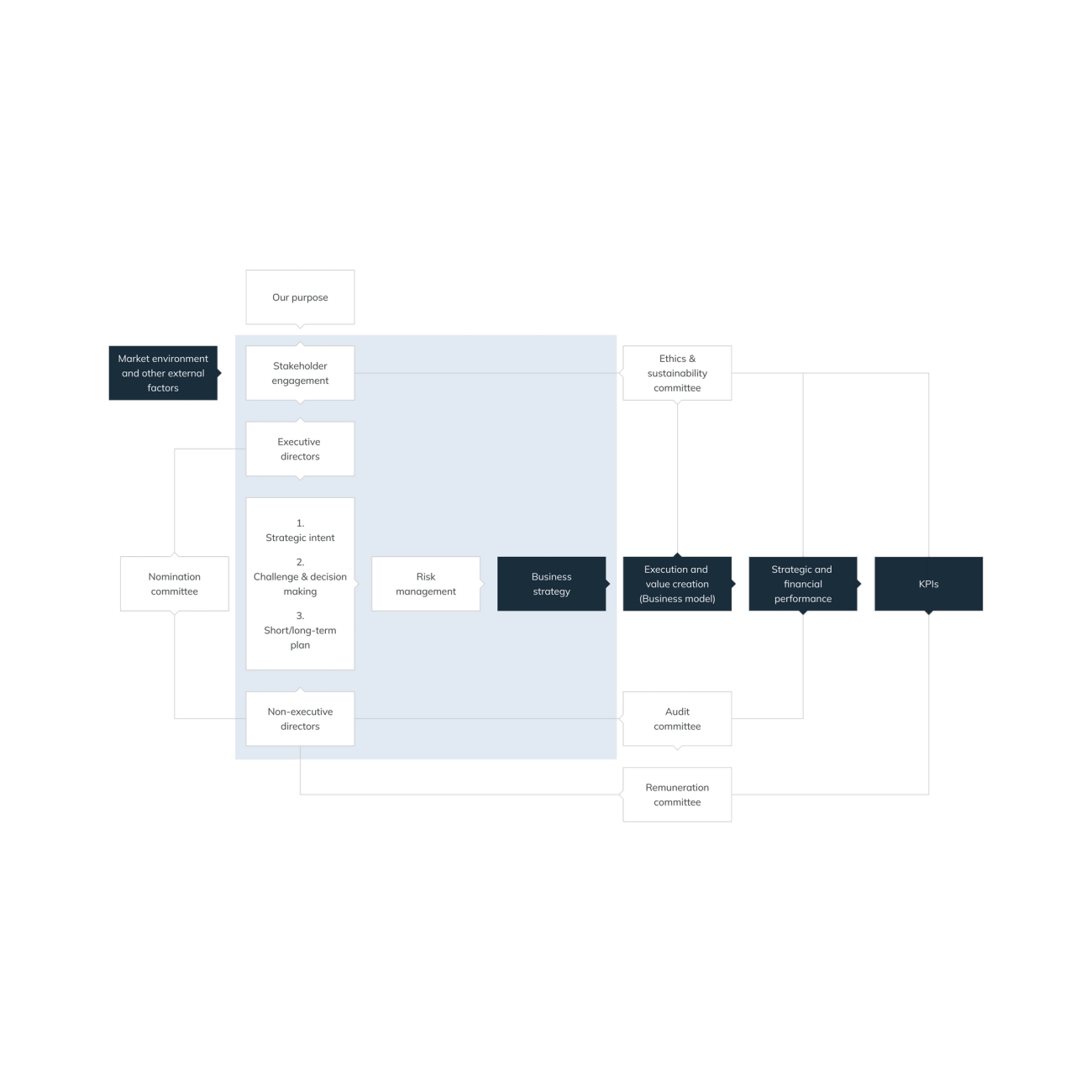Corporate governance reports
We are committed to high standards of corporate governance, corporate responsibility and risk management.
Our latest reports
2024 Report of the directors & corporate governance
PDF2023 Report of the directors & corporate governance
PDF2022 Report of the directors & corporate governance
PDF2021 Report of the directors & corporate governance
PDF2020 Report of the directors & corporate governance
PDF2019 Report of the directors & corporate governance
PDF2018 Report of the directors & corporate governance
PDF2017 Report of the directors & corporate governance
PDF2016 Report of the directors & corporate governance
PDF2015 Report of the directors & corporate governance
PDF

Compliance
The Board of Hunting PLC has adopted governance principles aligned with the 2018 UK Corporate Governance Code (the “Code”), which can be found at Financial Reporting Council’s website. Hunting PLC is reporting its Corporate Governance compliance against this Code.

Governance framework
Subject to the Company’s Articles of Association, UK legislation and any directions prescribed by resolution at a general meeting, the business of the Company is managed by the Hunting PLC Board (“the Board”).
The Board is responsible for the management and strategic direction of the Company, to ensure its long-term success by generating value for its shareholders, while giving due consideration to other stakeholders, as prescribed by UK law.

Board of directors
The Board discusses strategic planning and long-term growth objectives. Once the Board has agreed on these strategic plans, they are rolled out across the Group’s operations and relayed to key stakeholders more generally.
Embedded within strategic planning is the Group’s appetite for risk. The Group’s Risk Management framework help the Board refine its decision making, as the opportunities and risks for long-term success and growth are evaluated against their risk appetite and the risk culture of the Group. Following this, the Group’s Business Strategy and Model are put into action.
Responsibilities of the Board
The Board of Hunting PLC has clearly defined areas of responsibility, which are separate to those of the Chairman, executive Directors and the Committees of the Board. The non-executive Directors approve the strategic goals and objectives of the Company, as proposed by the executive Directors.
The Board approves all major acquisitions, divestments, dividends, capital investments, annual budgets and strategic plans.
The Board has overall leadership of the Company, setting the values of the Hunting Group and providing a strong tone from the top, which all businesses within the Group and its employees are encouraged to adopt.
Governance principles of the Company are set by the Board and key Group-level policies are reviewed and approved by the Directors.
The Directors monitor Hunting’s trading performance, including progress against the Annual Budget, reviewing monthly management accounts and forecasts, comparing forecasts to market expectations and reviewing other financial matters. They review and approve all public announcements, including financial results, trading statements and set the dividend policy of the Group.
The internal control and risk management framework and associated procedures are reviewed by the Board; however, key monitoring procedures are delegated to the Audit Committee. Remuneration of the executive Directors is set by the Remuneration Committee, who also review and monitor the remuneration of the Executive Committee, as well as monitoring the remuneration structure of the wider workforce.
The Board approves all key recommendations from the Ethics and Sustainability, Remuneration, Nomination and Audit Committees and approves all appointments to these Committees.
Board activities
Board and Committee materials are circulated in a timely manner ahead of each meeting.
At each meeting, the Chief Executive updates the Board on key operational developments, provides an overview of the market, reports on Health and Safety, and highlights important milestones reached towards the delivery of Hunting’s strategic objectives. The Finance Director provides an update on the Group’s financial performance, position, trading outlook, banking arrangements, legal issues, analyst discussions and statutory reporting developments relevant to Hunting. These topics lead to discussion, debate and challenge among the Directors.
The Group’s governance framework includes the Board and the Executive Committee. Medium-term planning initiatives are formalised within the Executive Committee, which are then reviewed regularly by the Board and are supported by periodic presentations by members of the Executive Committee.
Committees
The Board has four subcommittees to which it delegates governance and compliance procedures: These Board Committees support the Directors in their decision making.
The Ethics and Sustainability Committee
The Remuneration Committee
The Nomination Committee
The Audit Committee

















